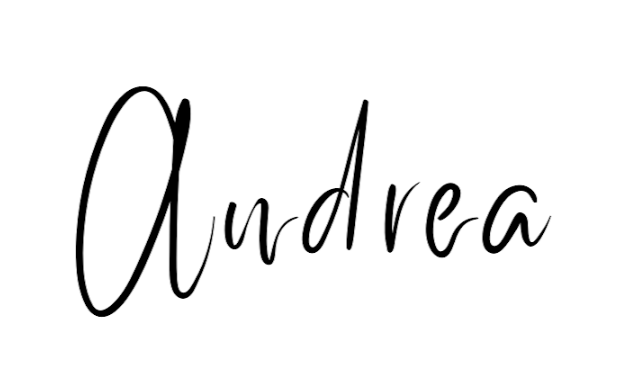
The job market today feels like a maze. Industries shift quickly, technology keeps advancing and global events can alter how we work and feel about our job and future.
If you’re just getting started in your career, you may notice that traditional paths are not as predictable as they used to be. Today, many people turn to career coaches to make sense of this new reality.
This guide is for anyone who wants clear, practical advice on how to find a career coach that fits your personal and professional goals.
Understanding the Role of a Career Coach
A career coach can help to transform your professional journey. Even if you’re uncertain about your path forward, a coach partners with you to explore career possibilities that align with your interests, strengths, aptitudes, and motivators, often by using coaching questions and career assessments.
Beyond career direction, they elevate your professional presence by refining your resume, optimizing your LinkedIn profile, sharing effective job searching methods, and helps to prepare for interviews.
Every career coach works differently, but most provide similar core services.
1. Personalized Career Roadmap
A good career coach starts by learning about you. This includes your education, past jobs, skills, goals, interests, and motivators. Together, you’ll co-create a career plan that fits your needs. The plan will include clear steps on keeping you focused as you work toward your career goals.
2. Career Assessments
Many coaches utilize highly favored career assessment tools that have scientific backing with years of research to help you gain self-awareness of strengths and aptitudes. By combining coaching questions and assessments, a coach can help you realize new career possibilities.
3. Resume, LinkedIn, and Cover Letter Optimization
Your career coach helps you express your experience in a way that highlights your strengths. They know what employers look for and can help you present your achievements clearly.
Your final resume, LinkedIn profile and cover letter should convey your skills, achievements, qualifications, career progression, and key metrics tailored to for each job.
4. Job Search Strategies and Professional Networking
A career coach can show you how to search smarter, not just harder. They’ll help you get comfortable with the many unknown features of LinkedIn,teach you how to use job boards more effectively and guide you in building a strong network.
4. Interview Preparation and Mock Sessions
Even experienced professionals feel nervous before interviews.
A career coach helps you get ready by walking you through the interview process. They’ll explain the different types of interview questions and guide you on how to answer them. They’ll also help you avoid certain answers that will not sit well with the hiring team.
Practicing with your career coach in mock sessions, and giving you feedback, can boost your confidence and readiness for that job interview.
Differences Between a Career Coach, Mentor, and Counselor
| Career Coach | Mentor | Counselor |
| Inspires and motivates employees to reach their full potential. | Offers an employee wisdom and advice | Offers employees support to overcome emotional challenges. |
| Helps individuals attain specific career goals. | Provides expertise and demonstrates-problem-solving skills. | Helps an individual regulate their emotions. |
| Improves the capabilities and confidence of an employee in the workplace. | Deals mostly with succession readiness and skill development. | Restores an employee’s mental health |
Some Key Benefits of Working with a Career Coach
Many job seekers find that career coaching gives them clarity and structure. Here’s some specific benefits:
- Helps you match your goals with an action plan
- Offers ongoing support while you explore career options
- Uncover career possibilities you may not have considered
- Provides personalized advice and honest feedback
- Redirecting your mindset when you feel stuck
- Improves your marketability to employers
- Keeps you accountable as you take each step
- Introduces alternative paths to approaching networking and job searching
Identifying Your Needs and Goals
Before choosing a coach, think about what kind of help you need.
- What’s not working in your career right now?
- What have you already tried to fix on your own?
- What would success look like for you?
Common Goals
Career coaching sessions should focus on some common career goals, including:
- Clarifying your next career step
- Finding new opportunities
- Improving your resume and LinkedIn profile
- Learning new job search strategies
- Building confidence in your skills
- Strengthening workplace relationships
- Developing leadership skills
The Importance of Setting Clear, Achievable Objectives
With specific goals in mind, you’ll have a better experience when you start with a career coach. You’ll be able to communicate what you need and measure how well you’re progressing.
- What am I hoping to achieve through coaching?
- Which parts of my job search feel the hardest?
- What do I need help with right away?
- What are areas I need to focus on?
- What materials or questions should I prepare in advance?
The Next Steps in Finding Your Ideal Career Coach
Researching Potential Career Coaches
There are many online and in-person resources to help you find a career coach. You don’t have to rely on just one method or site. Start by looking at the following areas:
- Professional networks and job-seeker groups
- Online searches for local or virtual coaches
- Use your own network by asking people you know for recommendations
- Community boards or local newsletters
- College or university career centers, especially helpful if you are a student or recent graduate
Evaluate Their Credentials
Choosing the right coach takes more than a quick search. Focus on someone who has the experience, energy, and style that matches your goals. Here’s a few ways to evaluate your options:
- Credentials: Look at their certifications, years of experience, and results with past clients.
- Fit: Do they communicate in a way that feels helpful to you? Can you picture working with them over time?
- Results: A good coach focuses on action. Look for someone who talks about progress, not just ideas.
- Check reviews or testimonials: See what other people have said about their experiences. That feedback can help you know what to expect before you commit.
Remember, a good career coach should not only offer good career advice but become your partner in helping you achieve the confidence, clarity, and momentum you’ll need to reach your goals.
Qualities to Look for in a Career Coach
Career coaches may have different approaches, but strong coaches share a few important traits. The following qualities will help you decide if someone is right for you:
- Active Listening: A good coach listens closely and makes sure they understand your needs before offering advice. They should assimilate information in ways that show they understand your true requirements.
- Empathy: You want someone who can put themselves in your shoes, see your challenges, and provide suitable solutions and guidance.
- Attention to Detail: Good career coaches should have an eye for the fine detail that can make your resume or interview answers stand out.
- Market Knowledge: A coach with a wide knowledge of different industries and job trends can help you on you on journey.
You are Now Ready to Interview Prospective Coaches
Once you have a list of potential coaches, reach out to schedule a conversation. This is your chance to ask questions, get a feel for their personality, and see if they are a good match for your goals.
Ask about:
- Background and Experience: Ask about the coach’s professional background, how they transitioned into career coaching, the industry levels they typically work with, and their success stories from previous clients.
- Style and Approach: Ask questions regarding their approach to clients, how they help clients identify their career goals, as well as their tools and techniques in their coaching sessions. How do they run their sessions? Do they follow a structure or adjust based on your needs?
- Specialization: What industries or topics do they focus on? Again, always remember to ask about their certifications.
- Compatibility: How do they learn about your goals? Ask how the coach assesses a client’s needs, how they tailor their coaching, and what questions they ask to understand a client’s aspirations.
- Logistics: It is important to ask how often they schedule sessions, how they communicate between sessions, their fees, and their payment structure.
Finally, Making the Decision
You’ve spoken to several career coaches. Now take time to reflect on your conversations.
- Who felt easy to talk to?
- Who made you feel supported?
- Whose advice made the most sense to you?
When making your decision, consider the following points:
- Compare the pros and cons of each career coach.
- Watch for warning signs, like vague answers or one-size-fits-all advice.
- Career coaching is a two-way process. Poor communication is a sign that the coach will not allow active participation during the coaching sessions.
- Trust your gut; if someone seems right, they probably are.
Setting Expectations and Goals With Your Coach
Once you have chosen your coach, set clear expectations from the start. Be honest about what you hope to gain and what kind of support you need. This helps your career coach tailor their approach to your situation.
Establish a Clear Coaching Plan and Timeline
A good plan includes:
- Defining clear career goals you want to achieve through the coaching process.
- Assessing your current career situation.
- Establishing the coaching strategies you prefer.
- Setting specific milestones.
- Defining a timeline.
Regularly Review Progress and Adjust Goals as Needed
Take the time to review how well the progress is progressing. Talk about what’s working and where you might need to shift focus. This keeps your coaching on track and meaningful.
Maintain Open Communication for a Successful Coaching Relationship
Your coaching experience will work well if you’re honest about what you think and feel, if you show up consistently for sessions and are ready to engage. Remember to stay involved in the process and take responsibility for your progress. Your coach is there to help, but your growth depends on your effort, too.
Conclusion
Working with a career coach can change the way you think about your job, your goals, and your future. From setting clear objectives to learning how to present yourself professionally, the support you gain from a career coach can be life-changing and life-affirming.
Don’t be afraid to explore your options, and choose a career coach who can help understand your career goals, set achievable milestones, remain active in your career activities (such as job searching, career discovery or leadership development) and help you achieve a career that you will enjoy.
Once you begin, stay curious, stay committed, and give yourself the time and space to grow.
Career satisfaction is not out of reach. With the right coach by your side, you can find the confidence, tools, and clarity to move forward.
Keep going. You’ve got this!

About the Author
Andrea Tropeano has coached thousands of people toward career success. She supports students, professionals and leaders in removing obstacles that are impeding positive desired results.
Her expertise focuses on addressing career confusion, job search, interview preparation, resumes, LinkedIn profiles, leadership development, professional coaching, and ADHD-if that plays a part in one’s career story.
Andrea received her Master of Arts in Industrial-Organizational Psychology from the University of New Haven.
She is a board-certified coach specializing in career, life, ADHD, and leadership success, holding credentials as a Professional Certified Coach (PCC) with the International Coaching Federation (ICF), a Board-Certified Coach (BCC) with the Center of Credentialing & Education, and an ADHD-Certified Coach (ACCG) through the ADD Coach Academy.





